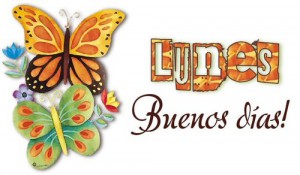We are very excited about the launch of our new daily program on Wednesday. This daily program will guide you through the Level 1 software and show you what you should be working on each day. Be sure to check back here for the daily video.
Now that my shameless plug is over, I’d like to teach you 5 common Spanish expressions with the verb ‘quedar’. The verb ‘quedar’ means ‘to leave it’, ‘to agree’, or ‘to decide’. However, it can mean something completely different in an expression. Without further adieu, here are the 5 Spanish expressions with examples of them:
quedar bien (mal) con | to be on the good (bad) side of
Mario siempre sabía quedar bien conmigo. | Mario always knew how to get on my good side.
Elena queda mal conmigo. | Elena is on my bad side.
quedar en la calle | to be homeless, left with nothing
Quedaron en la calle después del incendio de la fábrica. | They were left with nothing after the fire at the factory.
Quedaron en la calle debido a la economía. | They were left with nothing because of the economy.
quedar flechado/a | to fall in love with, feel love at first sight, be in love
Cuando vi a María, quedé flechado. | When I saw Maria, it was love at first sight.
Mario quedó flechado con Isabel y no quiso volver a trabajar. | Mario fell in love with Isabel and didn’t want to go back to work.
quedar grande (pequeño) | to be big (small)
Le quedó grande el vestido. | The dress was too big for her.
Me quedó pequeño la camisa. | The shirt was too small for me.
quedar pintado/a | to fit like a glove, very well; to be skin tight
¡Este vestido te queda pintado! | This dress fits you like a glove!
Me quedan pintado los pantalones. | The pants are skin tight on me.
Daily Challenge: Use one of these phrases as you practice Spanish and tell me about it in the comments or on Facebook.









